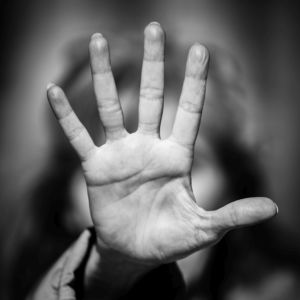Dedicated Lawyers Fighting for Adult Survivors of Sexual Abuse
Survivors of Adult Sexual Abuse Can Now Take Legal Action
For nearly four decades, we have represented survivors who have been sexually abused. We believe in giving survivors knowledge, tools, and opportunities for empowerment, healing, and justice. Adult survivors of sexual abuse in New York and California now have rights to take legal action for a limited time.
In November 2022, the New York Adults Victims Act (S.66A/A.648A) was signed into law by Governor Kathy Hochul. The law provides a one-year window for New York survivors who were sexually abused as adults to take legal action until November 24, 2023.
California Governor Gavin Newsom signed into law the Sexual Abuse and Cover-Up Accountability Act (AB 2777). Survivors who were sexually assaulted as adults in California now have a chance to expose their perpetrators and those who covered up the abuse.
AB 2777 allows survivors of sexual assault in California to bring a civil action for damages suffered as a result of sexual assault until December 31, 2026. This law revives all sexual assault cases where the survivor was sexually assaulted after January 1, 2009. Additionally, it specifically revives cases against corporations and employers who cover up sexual assaults.
California’s Sexual Abuse and Cover-Up Accountability Act specifically calls out how non-disclosure agreements (NDAs), or confidentiality agreements, are used to cover-up sexual assaults or harassment. Powerful institutions and intimidating perpetrators often manipulate victims into signing NDAs, saying it’s “just a formality”. Oftentimes, victims are not given a chance to fully read the NDA or consult with an attorney. In reality, when a survivor signs an NDA, they are forced into legal silence and not permitted to discuss their abuse or name their abuser publicly.
Why Survivors Often Wait to Disclose Abuse
The majority of survivors of sexual abuse wait years, if not decades, to tell someone about being abused. Below are some of the reasons survivors wait to disclose their abuse:
- Shame and thinking the abuse was in some way their fault
- Fear that the perpetrator will find out and will retaliate
- Fear that their friends, coworkers or family will find out
- Apprehension that they will not be believed
- Anxiety that talking about the abuse will be painful and triggering
- Fear of the authorities or fear of the unknown process of a legal consultation
- Non-disclosure agreements or other legal threats or coercions
How Perpetrators & Corrupt Institutions Silence Survivors & Empower Predators
- Grooming
- Threats to hurt family, loved ones or friends
- Reminding the victim of the perpetrator’s powerful connections
- Continued insistence that “no one will believe” the victim
- Verbal abuse that often results in lower self-esteem or self-worth
- Increased isolation over time, making it less likely the victim will confide in others
- Overall coercion, threats, & extreme harassment
- Aggressive legal strategies meant to intimidate and silence the victim
- Non-disclosure agreements (NDAs)
The Majority of Victims Know Their Perpetrator
If you are concerned about your privacy, or remaining anonymous, you can learn more about that in our Questions & Answers section on our website.

What if I Didn’t Fight Back or Say No? I’m an Adult and Should Have “Known Better”. Do I Deserve Justice?
Yes. Every survivor deserves justice, no matter what. It is normal for survivors to feel shame about the abuse, but it’s important for survivors to know the abuse is not their fault. Perpetrators are expert manipulators, and they know exactly how to target, control, manipulate and silence their victims.

What if the Perpetrator That Abused Me is Dead? Do I Still Have Legal Options?
There is a common misconception that if a perpetrator is dead that, 1. The survivor does not have legal options and, 2. There is no longer a safety risk to the public. Typically, neither of these claims are true. Even if the perpetrator is dead, survivors can usually still take legal action.

I’m Not Sure If I Qualify to Take Action Under Any Current Laws. What Should I Do?
Even if you think you don’t qualify under an Adult Victims Act law, you should consult an attorney. We recommend contacting a trauma-informed law firm that communicates with compassion, patience, and understanding; this vastly improves the experience for the survivor.

I’m a Male Survivor and am Scared and Ashamed to Come Forward. Will People Know Who I Am?
Sexual abuse is stigmatized in our society, and even more so for men. Being ashamed is a feeling many survivors experience. Many survivors do not want others to know about what happened to them, and that is okay. We take the privacy and confidentiality of survivors very seriously. When a lawsuit is filed, it is filed publicly in court, and that is not something we are able to change.

I’m Nervous to Reach Out as I Have Never Told Anyone About My Abuse. What Should I Expect?
Many of the survivors that call us have never told anyone about their abuse before. We understand how difficult it can be to take that step. Before reaching out to us, it may be helpful to take a look at our Questions & Answers page; it has a lot of answers to common questions survivors often ask.

I Don’t Have Any “Proof” or “Witnesses” of the Abuse. Will Anyone Believe Me?
When survivors call us, they are believed, listened to, and treated with compassion. Perpetrators often do everything they can to make sure that victims don’t have “evidence” to substantiate that the sexual abuse took place. Other times, survivors—out of fear and/or shame—will get rid of photos, gifts, letters, and other items.
Every Survivor’s Journey Towards Healing is Different. Hear Their Stories.
We have the honor of witnessing the courage of the survivors we work with, every day. Sharing these inspiring videos is another way that we can remind everyone who has been victimized by sexual abuse that they are not alone. See our Survivor Testimonials page to hear from more survivors.

